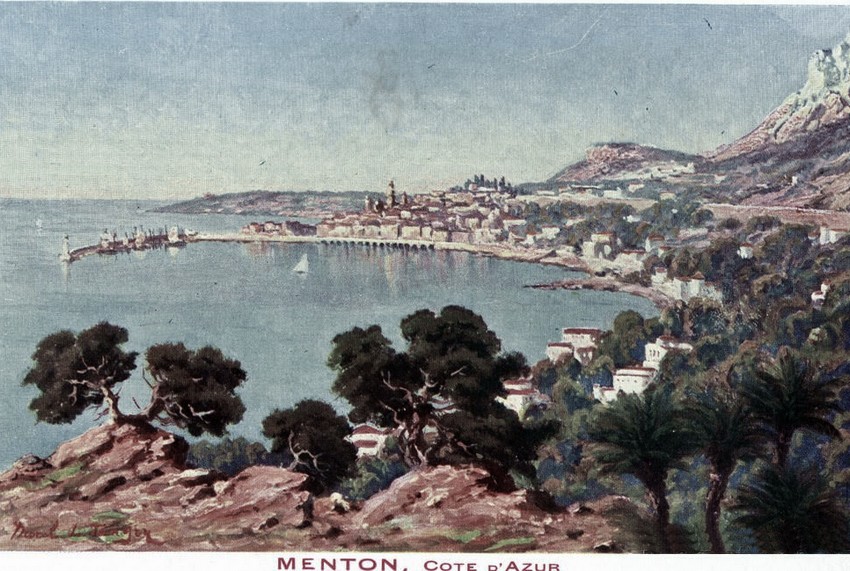
Some say that geography is destiny. For the “Mentonnais”, or the “Mentounasc” in the local language, this axiom seems especially true, specifically in regards to their identity. Surrounded by the mountains and the Mediterranean, Menton has always been on the borders of one country or the other. The immediate vicinity of foreign countries combined with its geographical isolation has allowed for Menton to create an identity that is truly Mentounasc. We see through documents that the Mentonnais identity was expressed differently as time passed. Yet the essential sentiment remained always the same: the Mentonnais are before anything else, Mentonnais…
A journalist for the paper “ le Patriote” explains in his article dated December 1880 that it is not necessary to be born in Menton in order to be Mentonnais. He goes on by saying that the Mentonnais are above all French, and that should France be threatened the Mentonnais would side with their “patrie”. One must keep in mind that in the 1880s the question about identity was a pertinent one in Menton, as the town had joined France a mere twenty years ago. Firstly, the existence of this article in a newspaper called “the Patriot” shows that there was indeed a pro-French sentiment shared by some, although it is impossible to confirm if they were the majority. We know for a fact that some prominent Mentonnais families who opposed the annexation to France were still influential in Menton in this period. We also know that these families opposed the annexation since they were connected to the old Monegasque administration.
This brings us to the subject of how the Mentonnais saw the “outsiders”, which is related to our main theme as the way the out-group is seen also sheds light about the characteristics of the in-group. The main culture shock that the Mentonnais experienced was the exponential growth of the number of inhabitants of the town. Menton grew from 5699 residents in 1866 to 17,900 in 1911. These figures show that the periods of population growth and French rule coincide which points out to a correlation between the two. Considering that it was through the infrastructure projects carried out by the French government that opened Menton to France and the Europe, it can be said that the expansion of the population shares the same trajectory with Frenchification. Most of this growth was due to immigration, leading the native Mentonnais to name groups of different kinds of outsiders. The first group was the “fourestié” who came from the other parts of metropolitan France. The second one was the “cujins” or “cousins” who were the Monegasque. They were not seen as outsiders, but neither were they considered natives to Menton. Regardless, they were seen more favorably compared to the other groups. The third group was the “l’estrangerié” who were neither French, nor Monegasque nor Mentonnais. L’estrangerié was further divided into the “ les Anglais” and the rest. “Les Anglais” was the term used by the Mentonnais to refer to the European tourists in general. There are stories of how the Mentonnais people were shocked to see an “anglais” who speaks German or another language. There is even one anecdote where a Mentonnais elementary school student tells his family that he loves school because there everyone speaks “anglais”, although the language in question was French.
These phenomena show that although the Mentonnais people started feeling French relatively early on, the Mentonnais identity persisted. This can be evidenced in how today the Mentonnais language is trying to be revived by local schools and other government institutions. However, with the contemporary political environment in France and Europe, the Mentonnais are faced with the question of where the immigrants from Africa and the Middle East fit in regards to the Mentonnais identity…